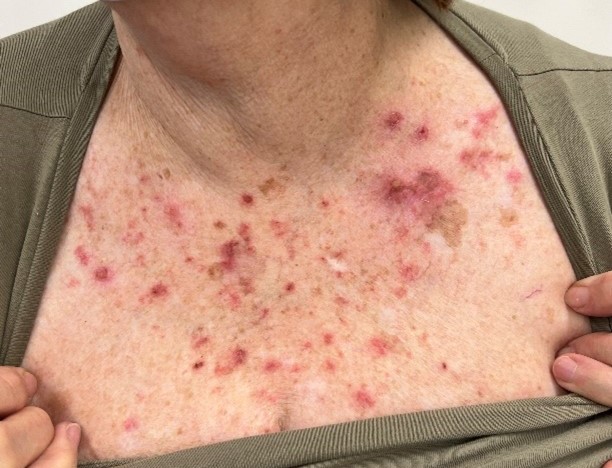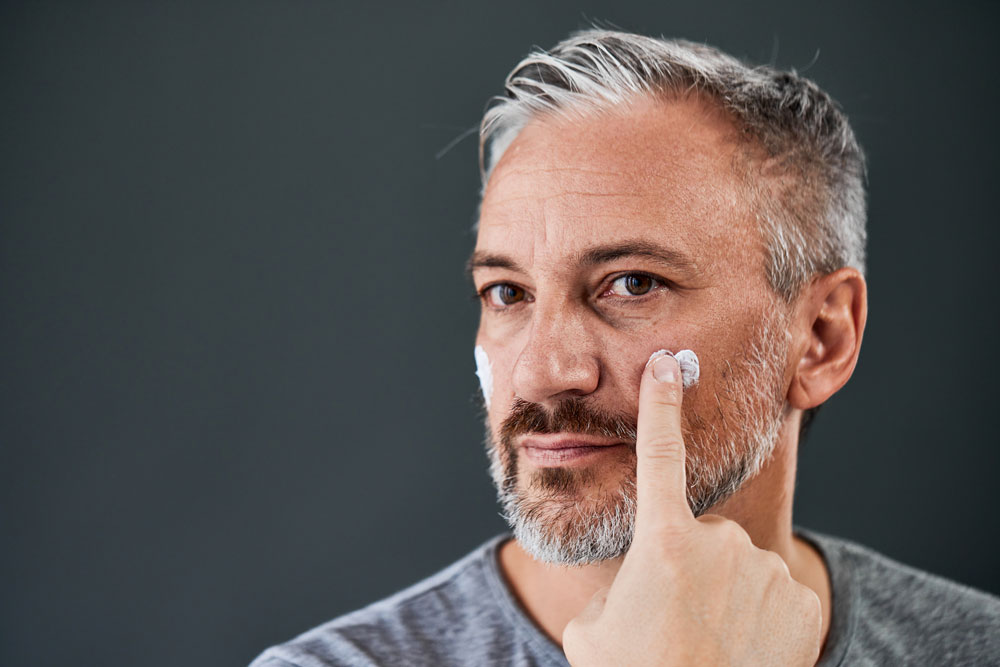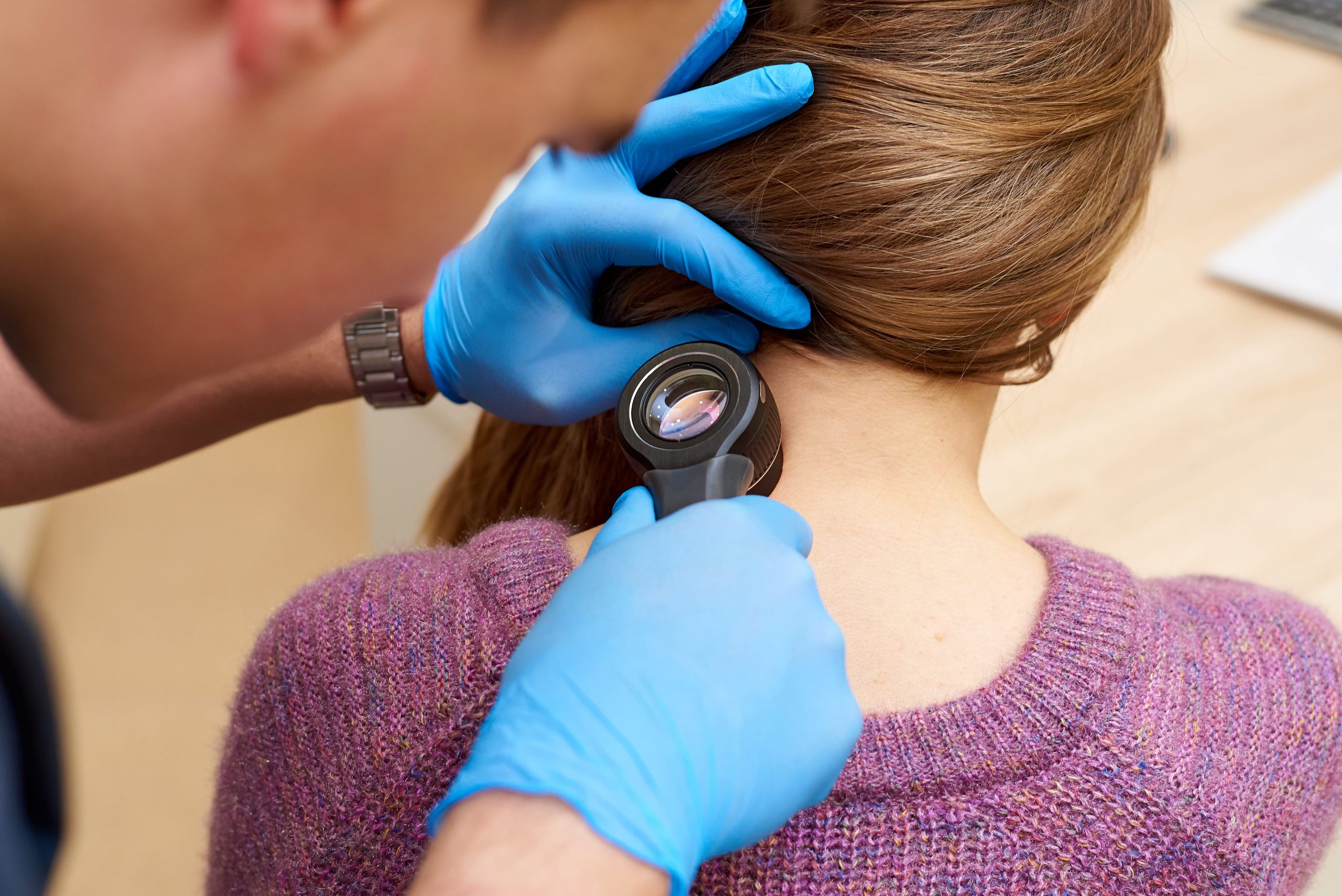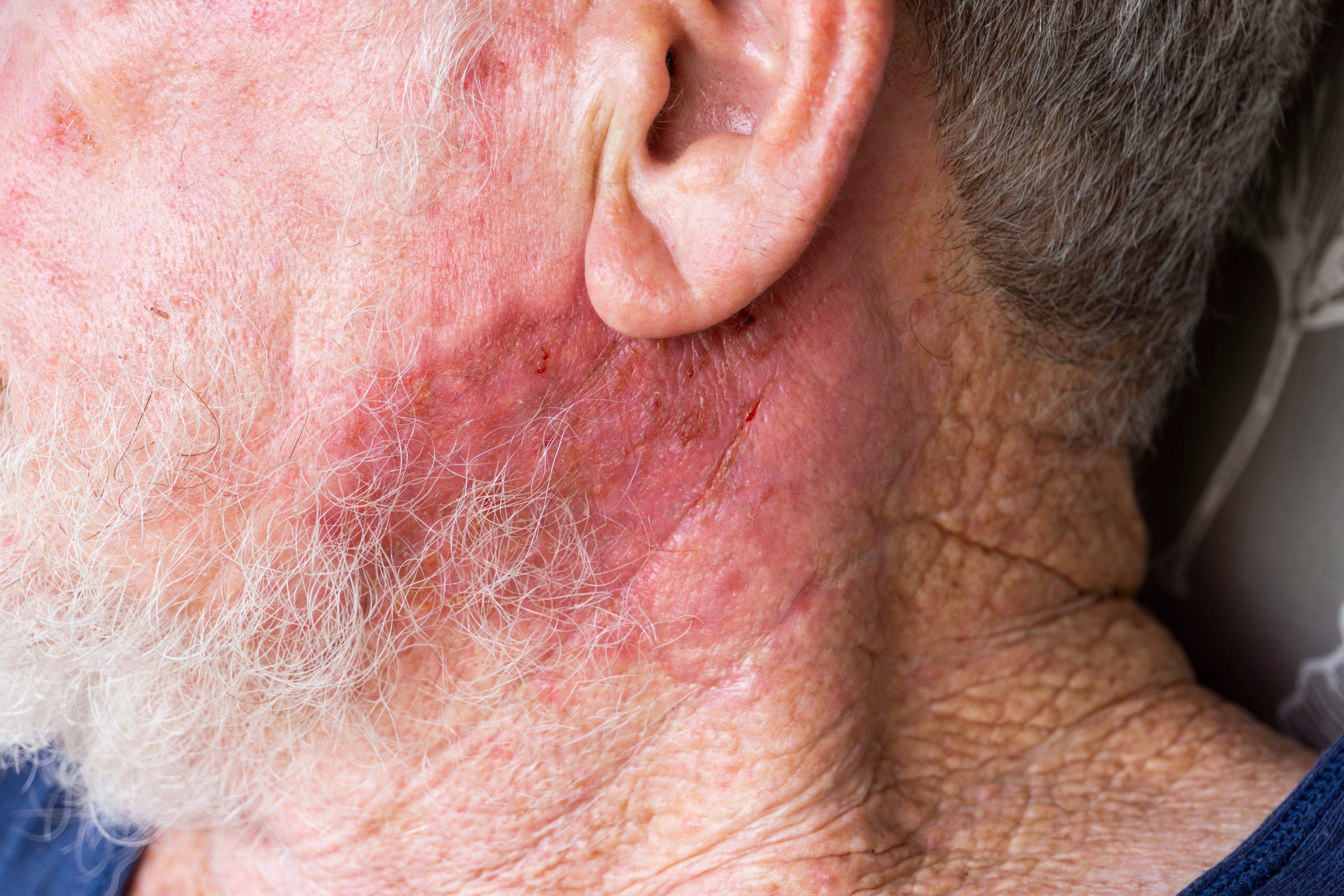Sebaceous cysts and lipomas are common benign skin growths that can occur in various parts of the body. While they are typically non-cancerous and harmless, they can be troublesome and cosmetic concerns.
Introduction to Topical Therapies
TOPICAL TREATMENTS
Keratinocyte cancers, including basal cell carcinoma (BCC) and superficial squamous cell carcinoma (IEC / Bowens Disease), are common types of skin cancer. Topical treatments are often considered for certain superficial or early lesions. It’s important to note that the choice of treatment depends on factors such as the type, size, location, and extent of the cancer. The topical treatment options for early keratinocyte cancers are:
- imiquimod 5% cream
- diclofenac 3% gel
- 5-fluorouracil 5% cream
- ingenol mebutate gel.
- PDT
Imiquimod:
Mechanism of action: Immune response modulation by stimulating the production of cytokines.
Application: Topical cream.
Indications: Superficial BCC (sBCC), Solar Keratosis
Treatment duration: Typically applied Monday-Friday for 6 weeks.
Side Effects: Severe redness (24%), severe scabbing and crusting (20%), itching (14%) and burning (5%)
Clearance rates: 85-90% sBCC


5-Fluorouracil (5-FU):
Mechanism of action: Inhibits DNA synthesis, leading to cell death.
Application: Topical cream
Indications: SCC in situ (IEC) – this is an early form of SCC that hasnt left the first layer of skin, Solar Keratosis
Treatment duration: Usually applied once or twice daily for a 4 weeks
Side Effects: local pain/pruritus, hyperpigmentation, burning, crusting, contact dermatitis, erosions, erythema, irritation, photosensitivity, ulceration
Clearance Rates: 80-85% for IEC
Diclofenac Sodium 3% Gel:
Mechanism of action: Nonsteroidal anti-inflammatory drug (NSAID) with anti-inflammatory and anti-cancer properties.
Application: Topical gel.
Indications: Actinic keratoses.
Treatment duration: Applied twice daily for up to 90 days
Side Effects: irritation, inflammation, blistering, contact dermatitis, erythema, exfoliation, and skin ulcer
Clearance rates: 40-50%
Ingenol Mebutate:
Mechanism of action: Induces cell death and inflammation in treated areas.
Application: Topical gel.
Indications: Actinic keratoses.
Treatment duration: 3 days
Note this is currently not available in Australia due to reports of increased rates of invasive SCC following its use. We await further data.
Photodynamic Therapy (PDT): (see section on PDT for more detail)
Mechanism of action: Photosensitizing agent is applied to the skin and activated by light to destroy targeted cells.
Application: Topical photosensitizing agent followed by light exposure.
Indications: Actinic keratoses, Superifical squamous cell cancer (IEC) and superficial BCC.
Treatment duration: Typically involves 1 session for AK and 2 sessions 1-2 weeks apart for IEC and sBCC.
Side Effects: Erythema (can last weeks – months), pain
Clearance rates: 75-80%


Topical Retinoids:
Mechanism of action: Modulates cell differentiation and has anti-cancer properties.
Application: Topical cream or gel.
Indications: Actinic keratoses.
Treatment duration: Applied once daily for 6 weeks.
Clearance rates <30%, may be used as a pre treatment for hyperkeratotic (thick) AK.
Cryotherapy (Liquid Nitrogen):
Application: Freezing the lesion with liquid nitrogen.
Indications: some early SCC, and actinic keratoses.
Treatment duration: Typically a single session, but may require repeat treatments. The treatment for non head and neck IEC is recommended serial cryotherapoy 2 weeks apart.
Clearance rates: 70% IEC serial cryotherapy.
Laser:
Note we do not recommend the use of laser for treatment of either solar keratosis or superficial skin cancers. The clearance rates are suboptimal and there are much better clearance methods available.
It’s essential for individuals to discuss with the team to determine the most appropriate treatment based on the specific characteristics of their keratinocyte cancer lesions. Additionally, regular skin examinations and sun protection measures are crucial for preventing the development of new lesions and managing the risk of skin cancer.
BOOK NOW
Our handpicked team of doctors, nurses and health professionals are here to make a meaningful difference to your life, at every stage of your life.

